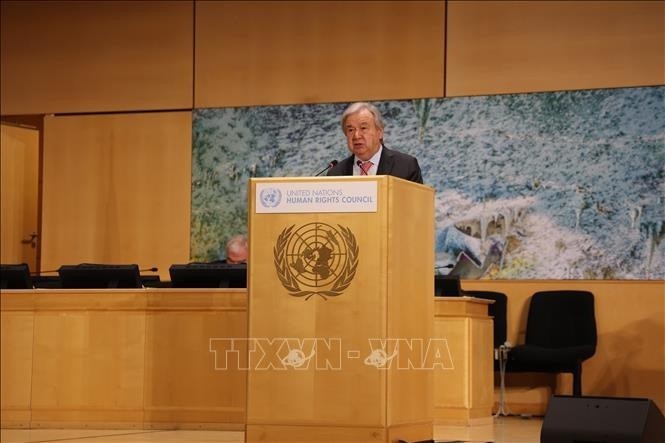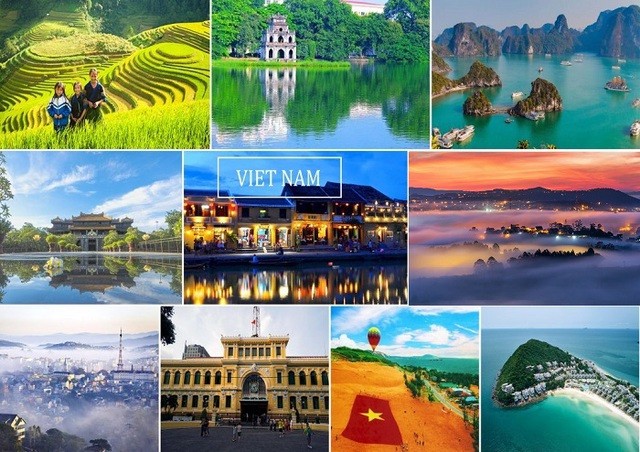Four Solutions for Vietnam to Further Enhance the Effectiveness of ICCPR Implementation
| Vietnam as Land of Hope, Resilience, and Progress | |
| UN Exhibition Highlights Vietnam’s Cultural Heritage and Human Rights Progress |
- What is the Vietnamese delegation’s assessment of the outcome of the recent dialogue session with the Human Rights Committee on the fourth report regarding the implementation of the ICCPR, held at the Committee’s headquarters in Geneva, Switzerland?
Vietnam engaged in the dialogue with the Human Rights Committee in a spirit of openness, sincerity, and constructive engagement. We consider this to have been a very successful dialogue session. The Vietnamese delegation conveyed a clear message reaffirming Vietnam’s consistent stance and policy of placing people at the center, viewing this both as the objective and the driving force of development.
Despite facing various difficulties, Vietnam has consistently dedicated its best resources and demonstrated strong efforts and commitment to promoting and ensuring the best possible implementation of human rights and civil rights, including civil and political rights as outlined in the ICCPR.
During the session, the Human Rights Committee acknowledged and appreciated Vietnam’s progress in several areas. These include the ratification of seven out of nine core international human rights treaties, the development and refinement of institutional frameworks in certain areas to prevent discrimination, as well as efforts to address domestic violence, promote gender equality, and combat corruption.
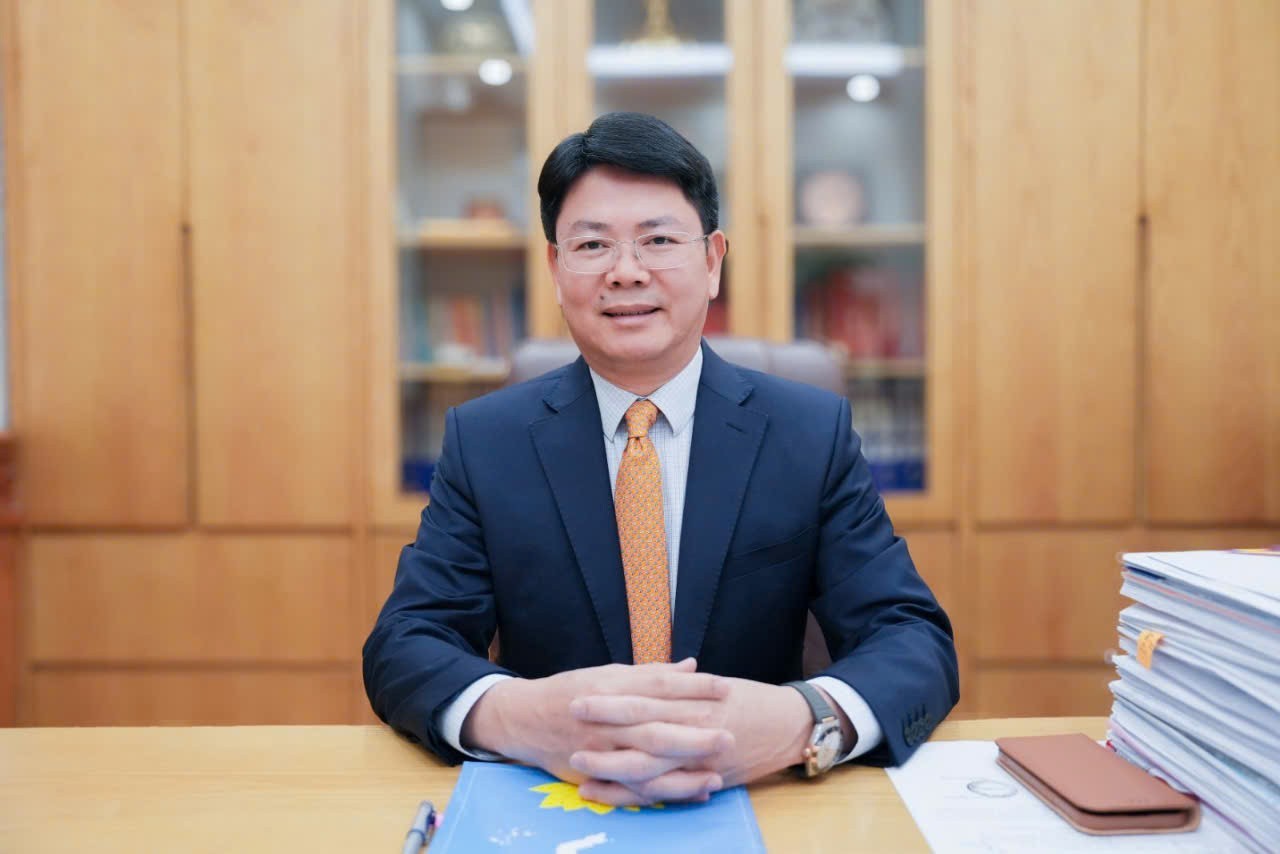 |
| Deputy Minister of Justice Nguyen Thanh Tinh |
To clarify the Committee’s concerns on several issues, Vietnam provided comprehensive information regarding its efforts and recent developments in the promotion and protection of civil and political rights since the previous dialogue with the Human Rights Committee in 2019.
The members of Vietnam’s inter-agency working delegation actively and proactively discussed a wide range of aspects related to Vietnamese policies and legislation, from institutional development, legal and judicial reforms, to the implementation of policies and laws, measures to ensure human rights in practice, as well as Vietnam’s future orientations aimed at further strengthening the effectiveness and efficiency of policy and legal implementation.
- In the process of implementing the ICCPR over the past years, could you share what have been the main challenges and advantages?
The ICCPR has a broad scope and profound content. The interpretation and application of rights under the ICCPR tend to be open and expansive, as reflected in the Human Rights Committee’s general comments on certain rights enshrined in the Covenant. Therefore, implementing the ICCPR requires significant resources and the continuous efforts of member states. Vietnam has also encountered such challenges during its implementation of the ICCPR, including disparities in human rights awareness across different levels and regions, as well as a legal framework that has not always kept pace with the evolving requirements.
Additionally, the process of incorporating certain provisions of the ICCPR into domestic law demands careful research to ensure harmonization with the broader legal system. The limited effectiveness of law enforcement in certain areas also affects the implementation of some civil and political rights. The rapidly changing and increasingly complex international environment, characterized by emerging non-traditional security challenges and deepening global integration, has placed additional pressure on Vietnam in fulfilling its international obligations, including those under the ICCPR.
However, alongside these challenges, Vietnam also enjoys important advantages that support the effective implementation of its commitments. First and foremost is the strong political will and consistent policy of the Party and State, which have always regarded the protection of human rights as a central goal in national development. This is reflected in the issuance of numerous policies, strategies, and specific action programs.
Another key advantage lies in Vietnam’s increasingly refined legal system. Many laws have been revised or newly enacted to incorporate ICCPR provisions into domestic legislation, thereby enhancing the protection of civil and political rights.
Moreover, the international community has increasingly recognized and highly valued Vietnam's efforts in fulfilling its international human rights commitments, while the country maintains constructive dialogues with the United Nations’ human rights mechanisms.
- Based on the outcomes of the fourth dialogue and the advantages and challenges you just mentioned, could you share the orientations for Vietnam to further enhance the implementation of the ICCPR in the coming period, particularly in regard to the recommendations made by the Human Rights Committee after this fourth review?
Resolution No. 27-NQ/TW dated November 9, 2022, of the Sixth Plenary Session of the 13th Party Central Committee on continuing to build and improve the socialist rule-of-law State of Vietnam in the new period (Resolution No. 27-NQ/TW), calls for the timely and comprehensive institutionalization and concretization of the Party’s viewpoints and policies, as well as constitutional provisions on human rights and the fundamental rights and obligations of citizens. It also mandates the incorporation of international human rights treaties that Vietnam has acceded to into domestic law, and calls for the effective application of the principle that citizens are entitled to do anything not expressly prohibited by law.
Most recently, Resolution No. 66-NQ/TW dated April 30, 2025, of the Politburo on reforming the legislative process and law enforcement to meet the demands of national development in the new era, sets out the task of developing and enforcing laws that ensure human rights protection.
In alignment with the above guidance and orientations of the Party, to enhance the implementation of the ICCPR in the time ahead, after this dialogue, we will develop and submit to the Prime Minister a national action plan involving the participation of ministries, sectors, and relevant stakeholders. This plan aims to further promote the effective implementation of the ICCPR and the recommendations of the United Nations Human Rights Committee made during this session. I believe the Plan should focus on the following key tasks:
First, continue to raise awareness among civil servants and public officials, particularly those involved in law-making and law enforcement, about the Party’s perspectives and orientations on human rights in legislative development, legal implementation, and judicial reform, as outlined in the 13th National Party Congress, Resolution No. 27-NQ/TW, and Resolution No. 66-NQ/TW. Professional training and capacity building should be enhanced for personnel involved in law-making and implementation, especially in fields directly related to the public, to internalize the Party’s view that people are the center and the subject of renewal, nation-building, and national defense. All policies must truly stem from the lives, aspirations, rights, and legitimate interests of the people, with the people’s happiness and prosperity as the ultimate goal.
Second, continue to review and institutionalize the Party's policies on human rights, and incorporate international human rights treaties to which Vietnam is a member into domestic law. The legal system must be democratic, just, humane, comprehensive, timely, consistent, transparent, stable, feasible, accessible, and centered on the protection of the lawful and legitimate rights and interests of individuals.
We regard Resolution No. 66-NQ/TW as the guiding compass for renewing legislative development and law enforcement in the coming period. Moving forward, the Ministry of Justice and relevant ministries and sectors must comprehensively implement the tasks assigned in Government Resolution No. 140/NQ-CP dated May 17, 2025, which issued the Government’s Action Program to implement Resolution No. 66-NQ/TW of the Politburo on reforming the legislative process and law enforcement to meet the demands of national development in the new era. A key focus in 2025 will be implementing the National Assembly’s resolution on mechanisms to address legal obstacles and challenges - a legal framework aimed at removing bottlenecks and creating a more open institutional environment for the protection of human rights.
At the same time, it is essential to effectively implement the two-tier local government model in conjunction with administrative procedure reforms and the provision of online public services so that citizens can truly benefit from the ongoing state apparatus streamlining reform. Central ministries and agencies must also promptly provide guidance and address any issues (if any) that may arise when localities operate under the new organizational model. Additionally, post-implementation supervision must be strengthened to enhance the accountability of local authorities in the performance of their duties, ensuring effective enforcement of the law, including the protection of human rights and civil rights.
Third, the effective execution of tasks outlined in Resolution No. 66-NQ/TW must be ensured, particularly those aimed at achieving breakthroughs in law enforcement. Laws must be enforced fairly, strictly, consistently, promptly, effectively, and efficiently. There must be a strong linkage between law-making and law enforcement to ensure that laws are not only enacted but also meaningfully implemented in practice. This was also a key content raised by the Human Rights Committee during this dialogue session.
Accordingly, in the time ahead, relevant agencies must focus on strengthening and improving the effectiveness of law enforcement, particularly in areas directly related to human rights. This includes ensuring the uniform, systematic, and rigorous application of laws to meet national development needs; improving and effectively implementing mechanisms for receiving and promptly addressing public and business complaints and recommendations; and enhancing inspection and supervision of public administration and state management activities in sectors directly impacting human rights.
Furthermore, greater attention must be paid to reforming the dissemination and education of legal knowledge on human rights, adopting a people-centered approach. Resources should be prioritized to provide legal education for vulnerable groups, including people living in mountainous areas and ethnic minorities. Communication about policies and human rights-related legal documents must also be strengthened, especially during the policy development phase, to ensure they are appropriately tailored to specific target groups.
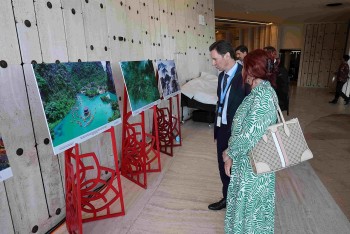 | UN Exhibition Highlights Vietnam’s Cultural Heritage and Human Rights Progress A photo exhibition titled “Vietnam - Identity, Humanity and Integration” is taking place from June 30 to July 9, 2025 in Geneva, Switzerland. The exhibition ... |
 | Deputy Minister of Justice Nguyen Thanh Tinh: Vietnam Always Values and Strives to Fulfill Its International Commitments on Human Rights From July 7 to 8, the Vietnamese delegation, comprising representatives from nine agencies including the Supreme People’s Court, the Supreme People’s Procuracy, the Ministry of ... |
Recommended
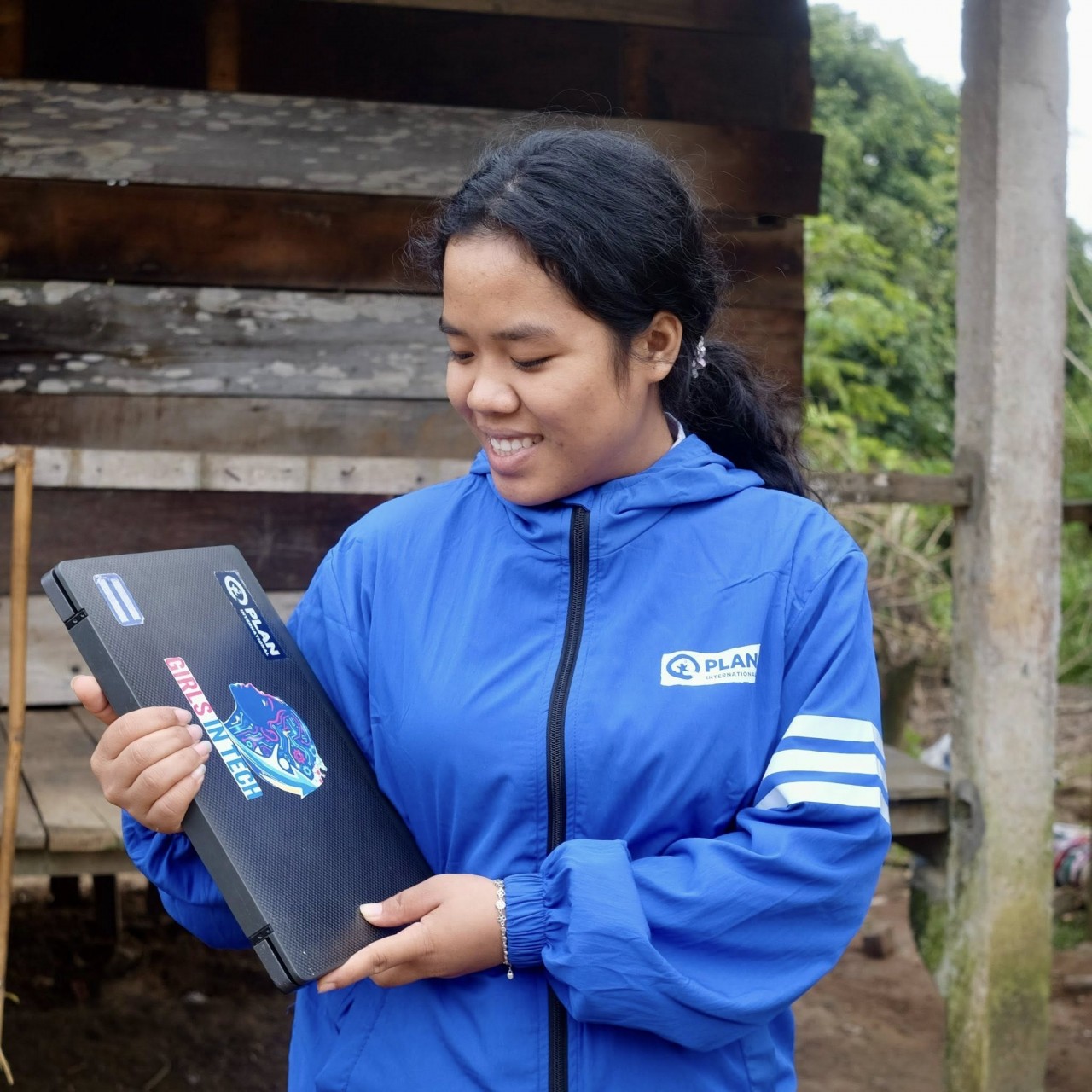 Viet's Home
Viet's Home
From Village to Lecture Hall to Learn “Code”
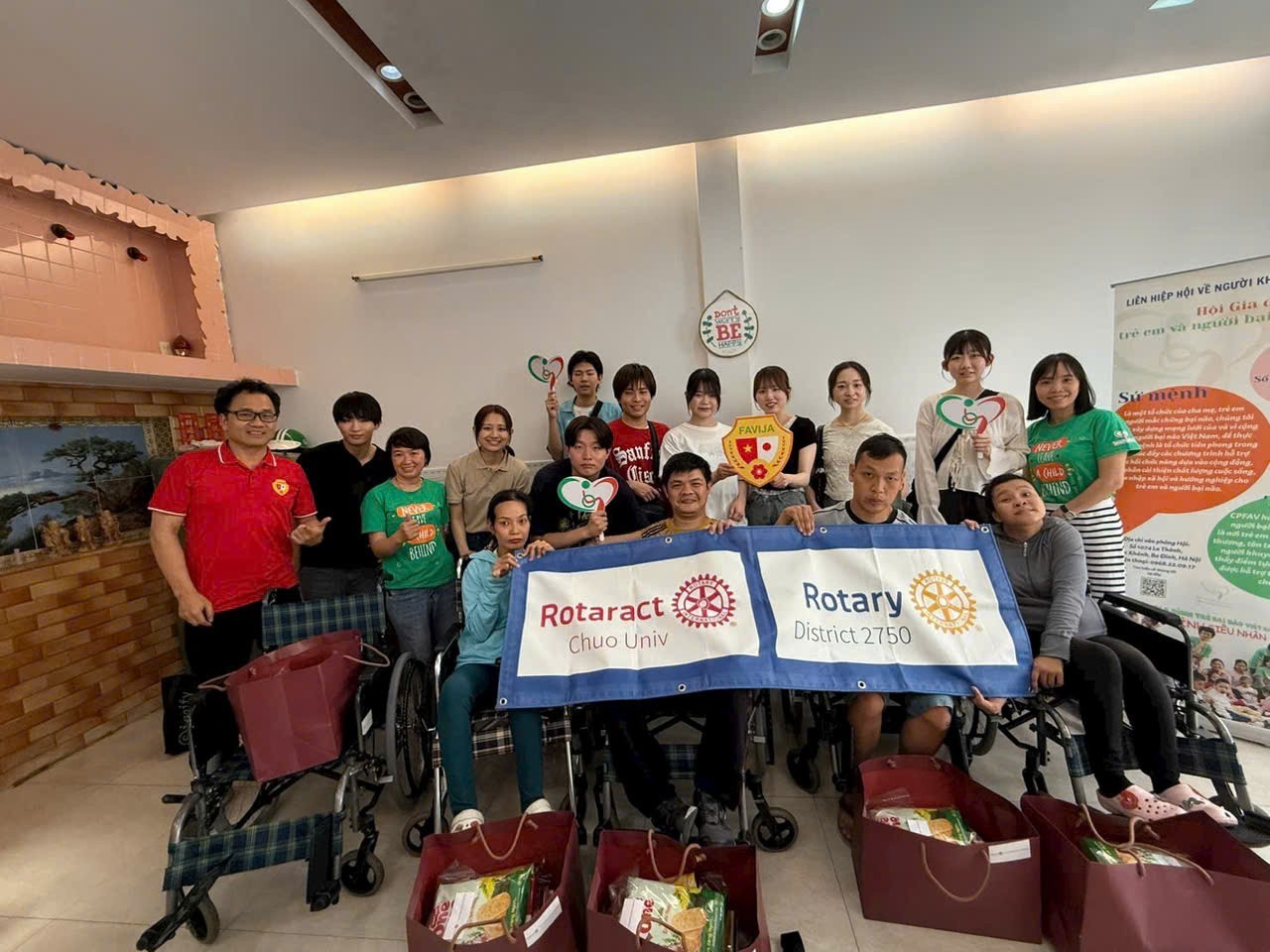 Viet's Home
Viet's Home
FAVIJA and Japanese Students Donate Wheelchairs to Persons with Disabilities in Vietnam
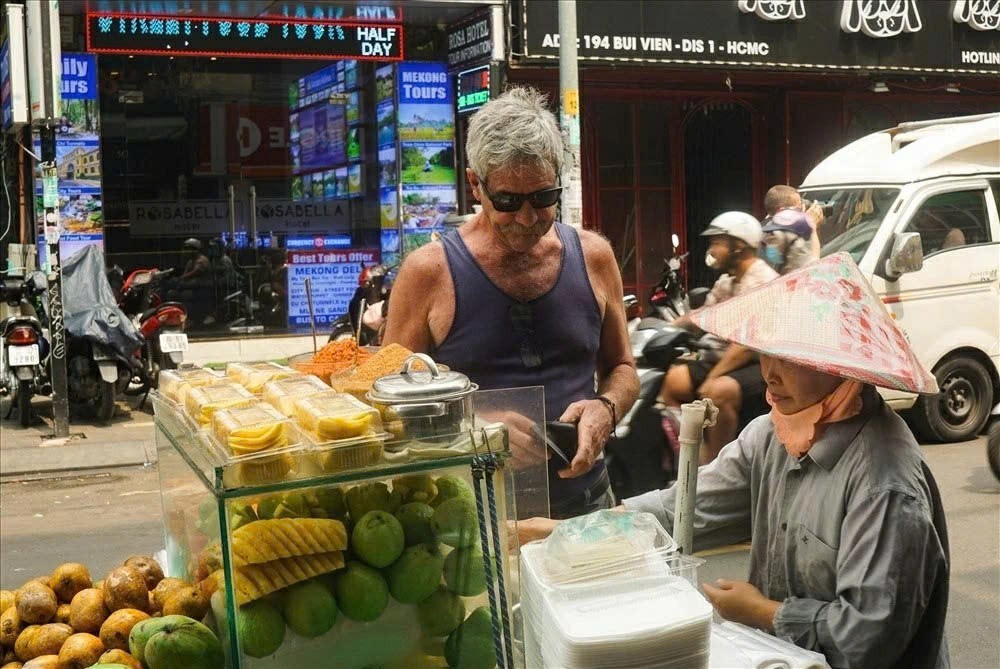 Expats in Vietnam
Expats in Vietnam
Foreigners Satisfied with Cost of Living in Vietnam
 Expats in Vietnam
Expats in Vietnam
Vietnamese Tet - Where “Friends from Afar” Find a Sense of Belonging
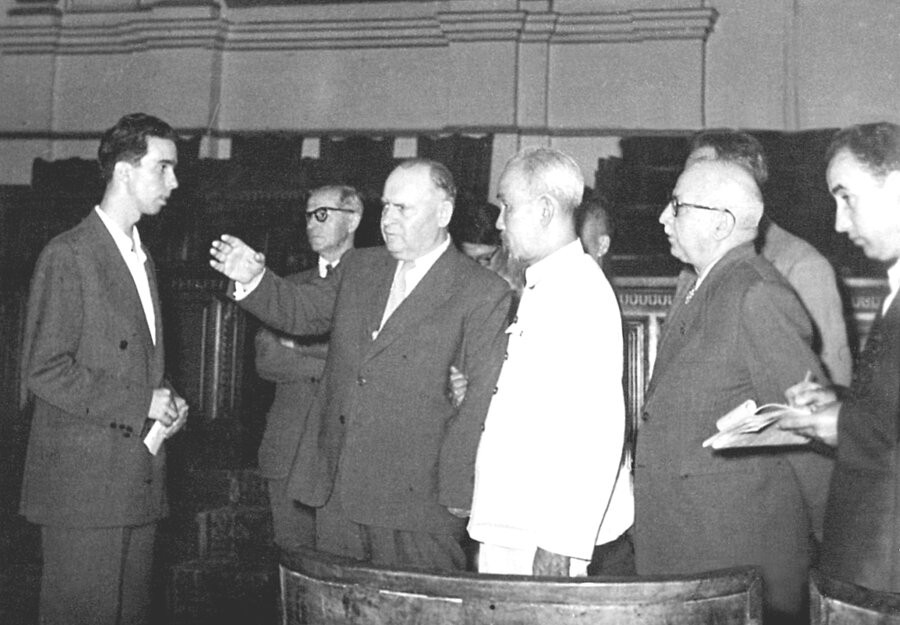 Viet's Home
Viet's Home
Ho Chi Minh’s Legacy in the Land of Roses - Bulgaria
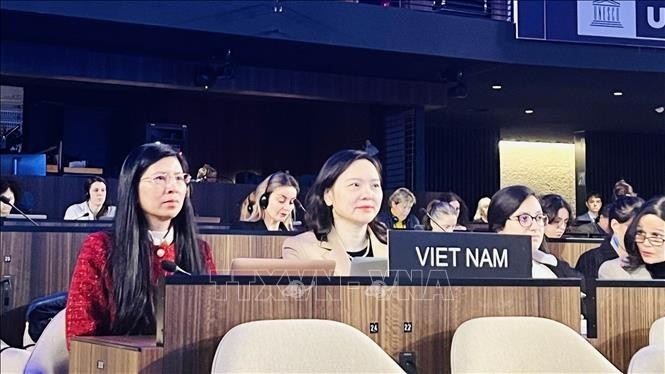 Viet's Home
Viet's Home
Vietnam Continues to Work with UNESCO to Safeguard Cultural Diversity in the Digital Era
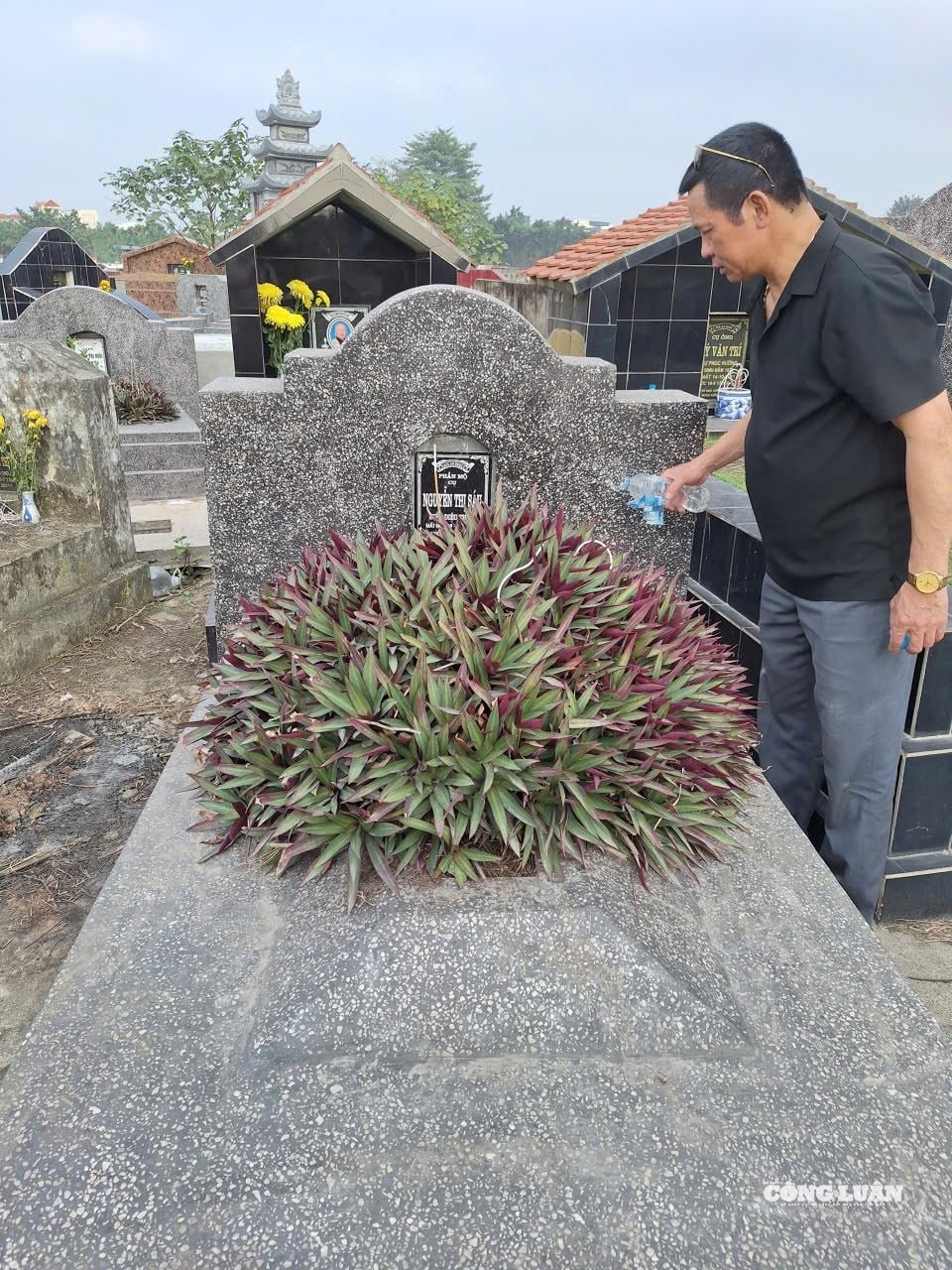 Viet's Home
Viet's Home
Inviting Ancestors Home for Tet
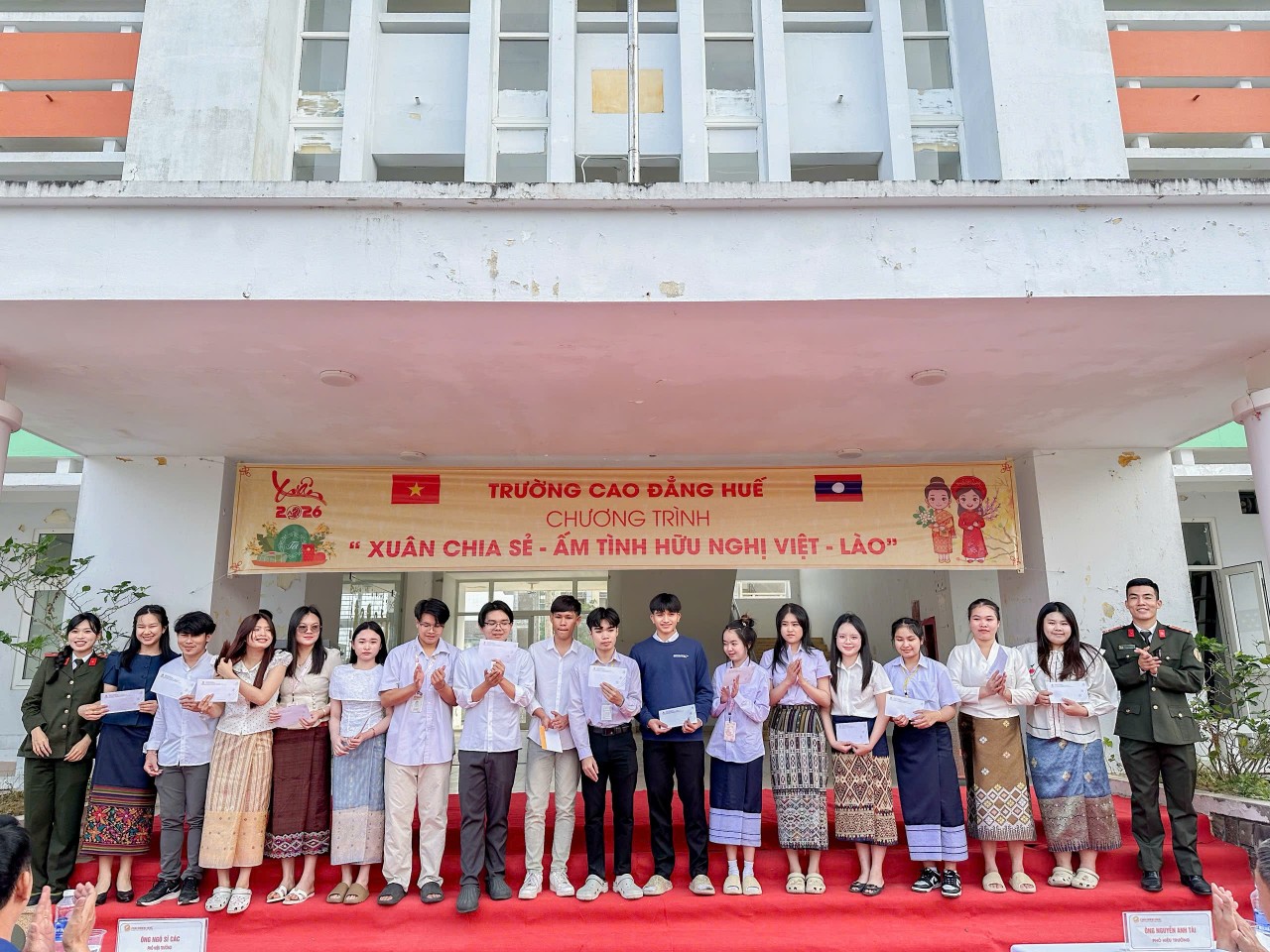 Viet's Home
Viet's Home

